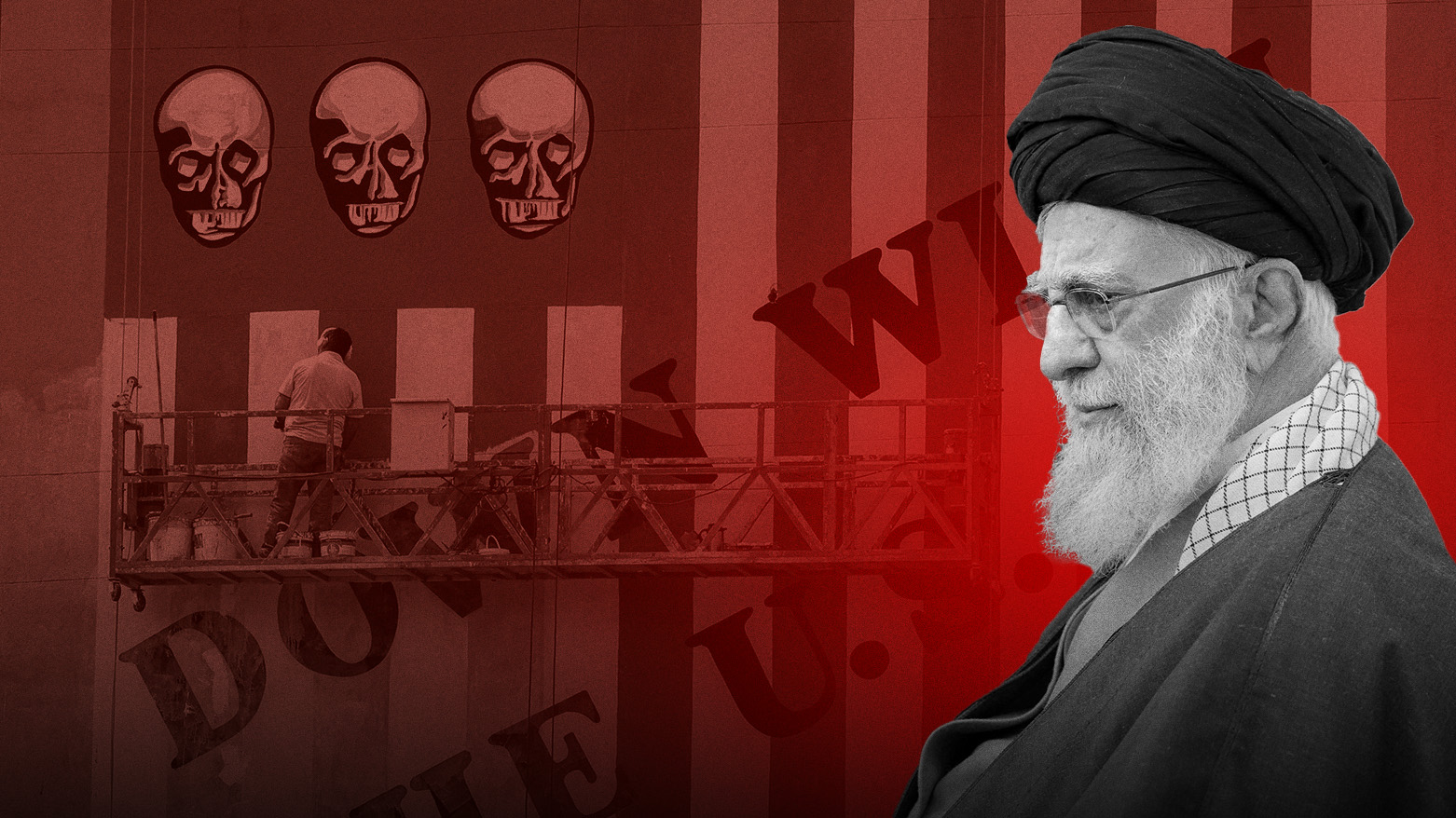‘We Are Neither Overly Optimistic Nor Pessimistic About the Talks,’ Khamenei
According to a report by the Islamic Republic News Agency (IRNA), Khamenei emphasized that “excessive optimism or pessimism” regarding the outcome of the Oman talks must be avoided.

By Kamaran Aziz
ERBIL (Kurdistan24) — Iran’s Supreme Leader Ayatollah Ali Khamenei has warned Iran’s senior officials against linking the country’s progress to the outcome of ongoing indirect negotiations with the United States in Oman, urging a more steadfast and autonomous approach to economic and national development. His remarks, delivered during a meeting with top government, judiciary, and parliamentary officials on Tuesday, come as tensions remain high over Iran’s nuclear program and Western sanctions.
According to a report by the Islamic Republic News Agency (IRNA), Khamenei emphasized that “excessive optimism or pessimism” regarding the outcome of the Oman talks must be avoided.
“The course of the country’s activities to achieve goals in all fields must continue with greater speed, and nothing should be tied to the outcomes of the negotiations,” he said, in a clear reference to previous rounds of nuclear diplomacy where domestic agendas were delayed pending Western decisions.
The Supreme Leader’s comments come amid renewed indirect talks between Tehran and Washington in the Sultanate of Oman. These talks are widely seen as part of a broader attempt to de-escalate tensions over Iran’s nuclear enrichment program, regional security issues, and economic sanctions. Though expectations for a breakthrough remain low, the meetings signal a continuation of quiet diplomacy between the two adversaries.
Khamenei, while supporting the decision to engage diplomatically, reaffirmed Iran’s skepticism toward U.S. intentions. “The negotiations may succeed or not. We are neither overly optimistic nor overly pessimistic about them,” he said. “Of course, we are very distrustful of the other side, but we are optimistic about our own abilities.”
The Iranian leader pointed to the experience of the 2015 Joint Comprehensive Plan of Action (JCPOA), the nuclear deal from which the U.S. unilaterally withdrew in 2018, as a cautionary tale. He stressed that a repetition of the mistake of tying all aspects of national progress—from investment to infrastructure—to the outcome of negotiations should be avoided.
Khamenei also used the platform to underscore the importance of follow-through and accountability within the Iranian government. Describing “follow-up” as the missing link in the realization of national goals, he stated that while Iran has “good laws and necessary plans,” lack of implementation has hindered meaningful progress. “The enthusiasm of officials is commendable, but without proper follow-up, decisions are often lost in the bureaucracy,” he added.
He urged the government and its institutions to focus seriously on implementing the year’s official slogan, which emphasizes investment in domestic production as a pathway to economic stability. “Investment in production is the most effective way to confront sanctions,” he stated, adding that “neutralizing sanctions is within our hands, even if lifting them is not.”
Khamenei called for stronger relations with neighboring and non-Western economic powers, such as countries in Asia and Africa, and praised recent diplomatic outreach. He urged continued coordination among all three branches of government in promoting economic reform, energy efficiency, and justice in public services.
Addressing the ongoing humanitarian catastrophe in Gaza, Khamenei denounced what he termed “unprecedented crimes” by Israel, citing attacks on hospitals, journalists, and civilians. “Extraordinary cruelty is required for such crimes, and the Zionist regime possesses it,” he said. He called for collective action by the Islamic world across political, economic, and operational fronts, declaring that “divine justice will eventually punish the oppressors,” but that responsibility lies with both governments and people to act.
The meeting opened with a report by Iran’s First Vice President Mohammad Reza Aref, who highlighted recent government efforts to tackle inflation, support vulnerable groups, expand foreign cooperation, and execute strategic development projects. Aref noted that while steps had been taken in the past seven months to improve economic conditions and public services, significant challenges remain.
As “indirect” diplomacy continues in Oman, Khamenei’s message reinforces a policy of strategic independence: pursue talks with caution, but never allow Iran’s trajectory to hinge on external powers. The leader’s call for pragmatism and internal focus may shape Iran’s approach to both the Oman negotiations and the broader geopolitical arena in the months to come.
